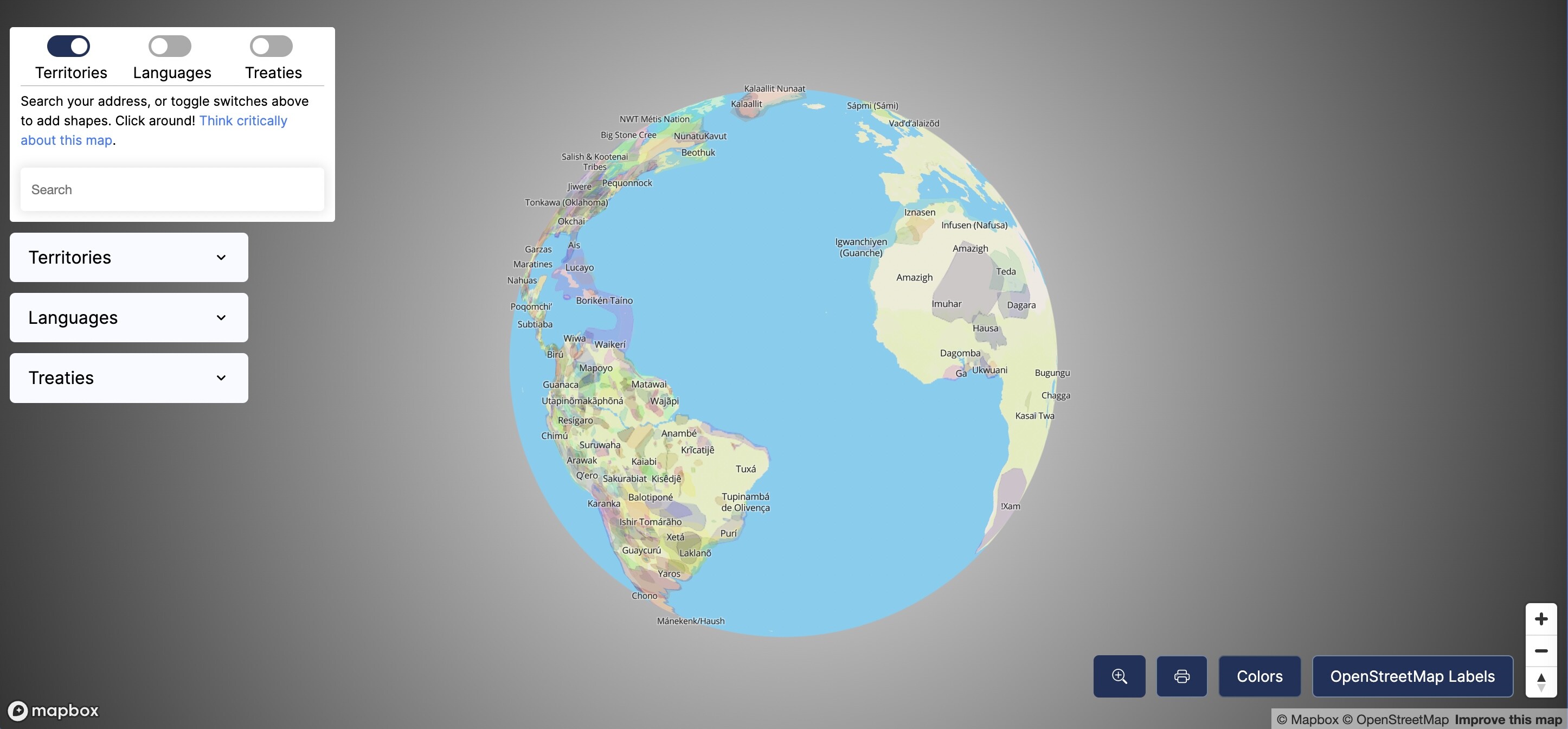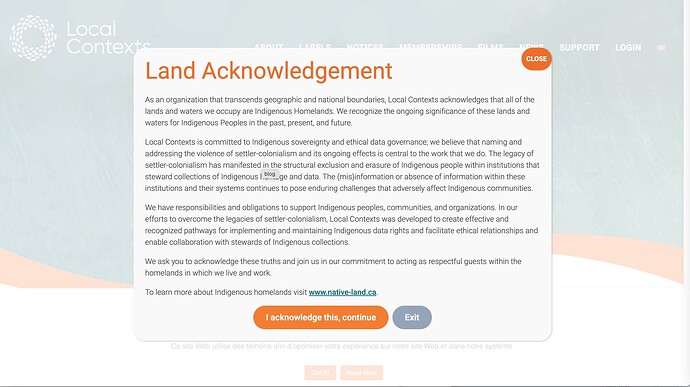Overwhelmingly much of the feedback on this year’s OEGlobal 2023 Conference was an appreciation for the conference vision and themes of Indigenous ways of knowing. Like many of you, this has stayed with me.
It’s been noticeable how many place-based educational institutions, especially here in Turtle Island / North America but increasingly more in the US, Australia, New Zealand have developed and made public their land acknowledgements and commitments to reconciliation.
I could list many, but take for example BCcampus, where land acknowledgments are on every web page, I see it in footers of emails from colleagues, it is part of their online webinars, but more importantly, reflected in their programs and projects. And they are an organization with multiple physical locations plus staff who are remotely based.
So the question has been bubbling in my mind for a while, what steps might a globally distributed organization… say mine, Open Education Global, develop and stand behind as a land/people acknowledgement?
Our “location” where the organization is registered, is actually a post office box in Concord, Massachusetts. This is not really where we located. From Native Land Digital I find our mailing address is on the ancestral lands of the Nipmuc, Agawam, Massa-adchu-es-et, and Pawtucket people.
Creating such a statement of course would need to be carried out by the organization and board of directors, but my first question was to seek other distributed organizations are doing this.
First I found a very helpful example as a Global Indigenous Peoples Acknowledgement from Fielding Graduate University, located in California, but operates as a globally distributed organization.
Speaking of global, I wondered what UNESCO publishes. I did not find anything specific, but since they have so many programs addressing Indigenous peoples, you will find useful statements in say, the UNESCO policy on engaging with indigenous peoples:
Marginalized economically, socially and politically, indigenous peoples are also often pushed to the margins of our consciousness. whether in the form of explicit racism or largely unconscious prejudices that associate indigenous peoples with the past rather than the present, misrepresentations persist. indigenous peoples are not the “roots” of humanity, they are part of the structural core, like all of our contemporaries. the long history of their social representations and cultural practices should not negate their right to a fair and sustainable present. as peoples of this century, indigenous peoples should not be confined to a lesser condition of humanity. UNESCO is fully committed to working for this justice.
And then I found when visiting the web site for the relevant Local Contexts organization, this acknowledgment:
As an organization that transcends geographic and national boundaries, Local Contexts acknowledges that all of the lands and waters we occupy are Indigenous Homelands. We recognize the ongoing significance of these lands and waters for Indigenous Peoples in the past, present, and future.
Local Contexts is committed to Indigenous sovereignty and ethical data governance; we believe that naming and addressing the violence of settler-colonialism and its ongoing effects is central to the work that we do. The legacy of settler-colonialism has manifested in the structural exclusion and erasure of Indigenous people within institutions that steward collections of Indigenous heritage and data. The (mis)information or absence of information within these institutions and their systems continues to pose enduring challenges that adversely affect Indigenous communities.
We have responsibilities and obligations to support Indigenous peoples, communities, and organizations. In our efforts to overcome the legacies of settler-colonialism, Local Contexts was developed to create effective and recognized pathways for implementing and maintaining Indigenous data rights and facilitate ethical relationships and enable collaboration with stewards of Indigenous collections.
We ask you to acknowledge these truths and join us in our commitment to acting as respectful guests within the homelands in which we live and work.
That makes a clear statement of values and commitment that works any/everywhere, right?
This is but one step, the acts we take are also ones as individuals. All of us operate on physical lands which have stories going long back before what we know as the world. We can not only acknowledge, but respect and honor in the way we operate from these places.
I’m curious to know of more examples of land acknowledgements for distributed organizations. This is really my own question, but one I think we should be discussing.
That means… click that reply button! Thank you.

